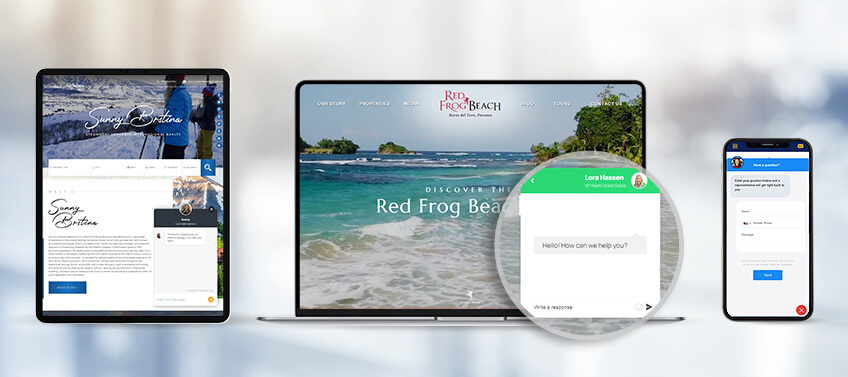Unless you’ve been living under a rock, you might have heard a little something about marketing automation. After all, 75% of all companies have used at least one kind of automation tool.
Chances are, you’ve already encountered one of the most commonly used ones today: chatbots. They aren’t just novelties, either, as many agents use them to rapidly respond to basic inquiries or to confirm appointments — not unlike a virtual personal assistant who works around the clock.
But that’s not the only benefit of having a chatbot on your real estate website. This tool can also boost your search rankings, making it easier for would-be clients to find you online.

How do chatbots benefit your SEO efforts?
Search engine optimization (SEO) is the art and science of tweaking websites to make it easier for Google to index and display them as search results. Whereas before, this was accomplished through (often excessive) keyword insertion, today relevance and user experience are the main determinants of website ranking. The good news is that chatbots can improve both of these aspects.
- Increased dwell time – Have you ever Googled for something, clicked on a search result, and immediately realized the website is not what you needed? Chances are, you immediately closed that tab and moved on to other results. Unfortunately, this could hurt a site’s ranking because Google looks at dwell time or the time people spend on a page as an indicator of content quality and relevance. With a chatbot on your website, however, users have a “concierge” who can directly provide the information they need or point them toward the relevant landing page. The result? Visitors interact with and stay on your site longer than they might otherwise have.
- Explore more pages – A real estate website has many different sections, such as dedicated portals for buyers, sellers, and investors. It may also have landing pages for home valuation, mortgage calculators, and interactive listing maps. A chatbot can recommend these pages to site visitors, effectively ushering them from one part of the sales funnel to the next. They’ll also be viewing more pages — a sign of engagement that search engine algorithms value highly.
- Encourages positive reviews – In the digital age, convenience is king. When website visitors have a “virtual butler” who can assist them with anything they need, they tend to have a good browsing experience. And when people have a good browsing experience, they are also more likely to leave good reviews for your team or brokerage. Since good reviews indicate authority and credibility, your website will rank highly in search results. Most importantly, other people will be more likely to visit your site once they see your reviews. In short, you create a virtuous cycle where everyone wins!
- Collect vital consumer data – Each chatbot conversion yields valuable insight into what real estate clients really need. Is the majority of your site visitors buyers or sellers? Which neighborhoods are they most interested in? What’s the typical budget they’re working with? All of these are useful information that you can use to not just improve the chatbot experience, but to also optimize your site. For instance, you may switch up your featured communities to more closely match the queries your chatbot receives. The easier it is for people to find the information they need, the better the user experience, and the higher your search rankings will be.

Best practices to keep in mind
Of course, a chatbot is just a tool — how successful it will be depends on how you use it. To deliver the best chat experience and to maximize your search engine results, pay attention to these best practices.
- Use it where it makes sense – You may be tempted to replace your contact form with a chatbot, but that might not be the best idea. Remember: a chatbot is meant to organize information and provide preliminary answers to people. If they have questions that are outside a chatbot’s capability to answer, it never hurts to have a form that site visitors can fill out manually.
- Make sure it doesn’t bog down speed – All agents want a website with robust features. However, too many bells and whistles might cause your site to slow down, which can ding your search result standing. Why? Because speed is now considered a ranking factor by Google since it directly affects user experience. If you notice that your chatbot is increasing load times, either compress it further or delay its appearance until all other essential web elements have been loaded.
- Ensure mobile compatibility – On a desktop, chatbots occupy only a small portion of the screen real estate. On mobile devices like smartphones, however, they will likely dominate the screen and obscure all other content and navigation buttons, creating a bad browsing experience. Hence, give users the option to use the chatbot function instead of making it pop up automatically. Furthermore, there should be an obvious and easily clickable “exit” button so users can end the chat whenever they wish to.
Want a website that has a chatbot function? Allow Agent Image to refresh your site and equip it with cutting-edge lead generation tools. Just contact our team at 1.877.317.4111 or send a message here to get started.
And if you want more real estate marketing advice, be sure to follow our blog as well!